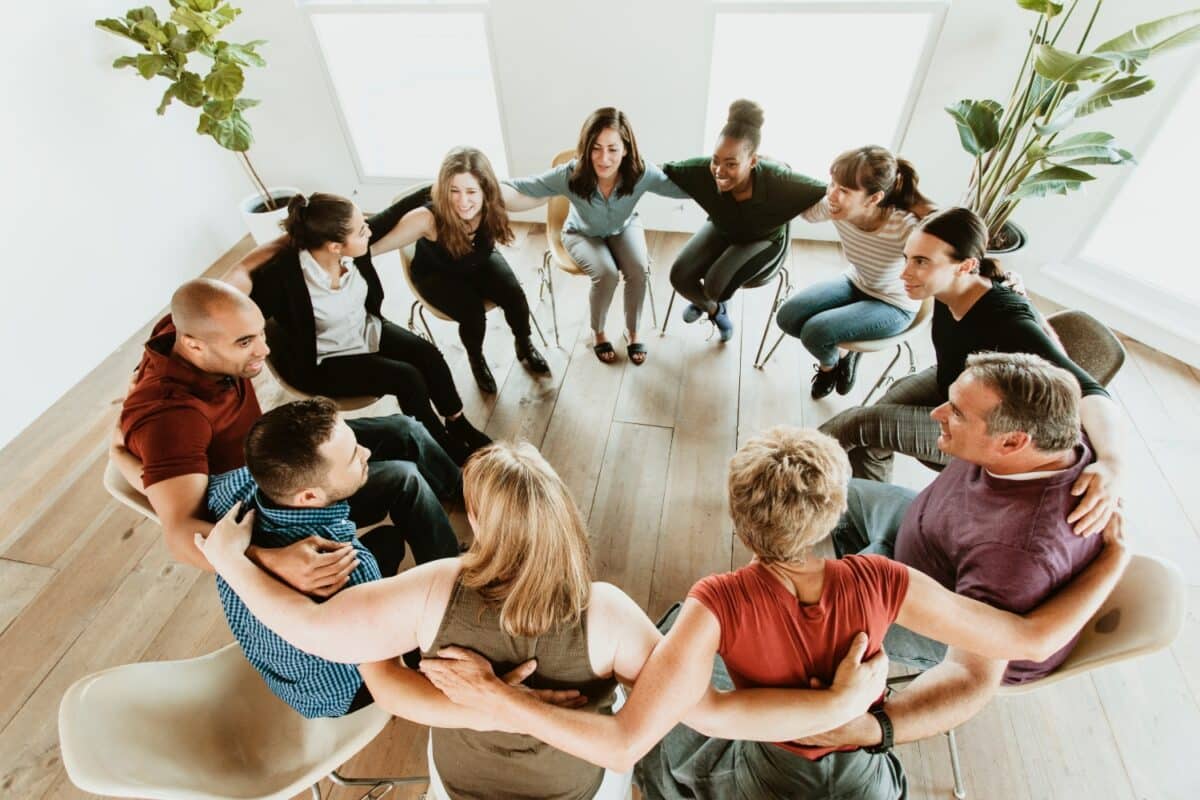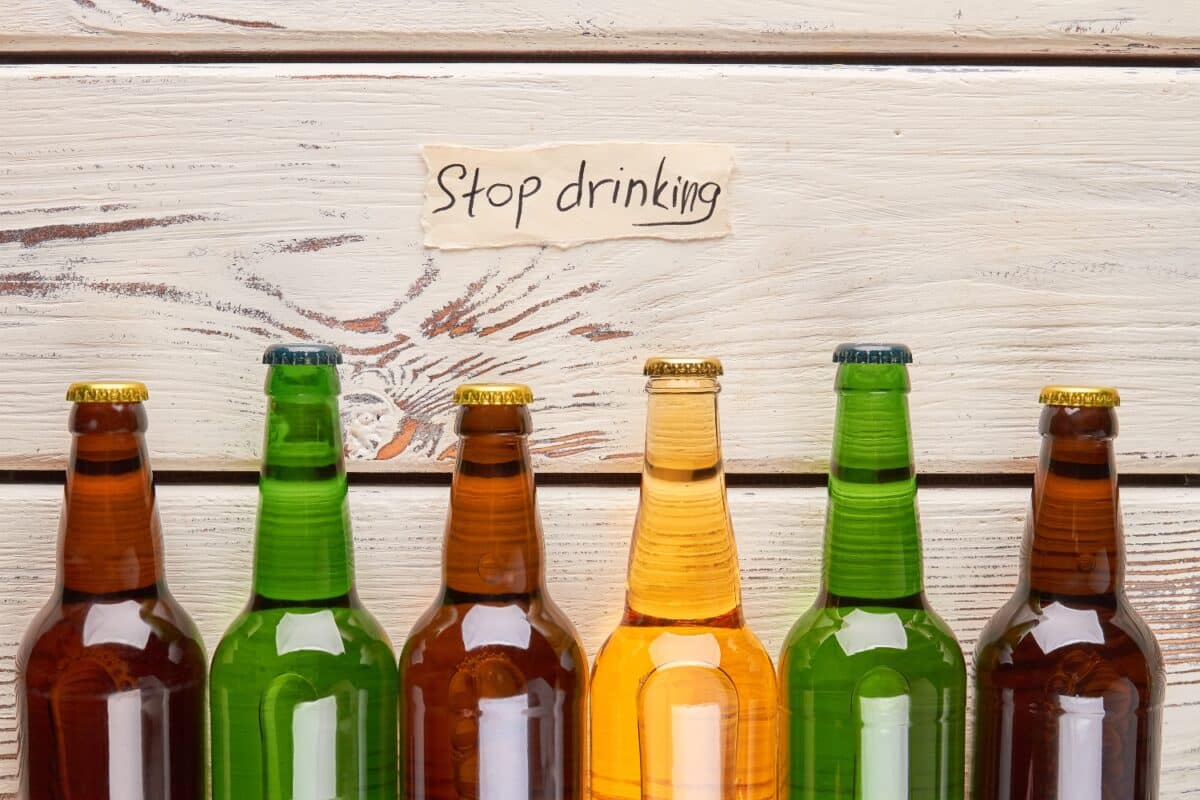Non-alcoholic drinks, those with no more than half a per cent alcohol, are no longer relegated to the odd-tasting beer. In fact, worldwide sales of non-alcoholic beverages such as NA wines, NA spirits and NA IPA beers are on an impressive upswing, with forecasts by drinks market research experts IWSR predicting a significant surge in no- and low-alcohol consumption, set to increase by 31% by the end of year 2024.
Studies by the UK’s NHS have shown that giving up alcohol significantly boosts mental health, and switching to non-alcoholic drinks boosts energy levels and healthier skin and may increase your overall happiness levels.
Sounds great, right? But what does all of this mean to those in recovery?
For those individuals recovering from alcohol addiction, NA beverages have emerged as popular substitutes for traditional alcoholic beverages. However, the critical question remains: Can you maintain sobriety and also enjoy NA drinks?
In this article, we’ll examine how NA drinks are globally changing the landscape of how people drink and what this means for sober living.
Alcohol-Free Gains Acceptance
In today’s world of alcohol and addiction awareness, more and more young people are deciding to cut back or eliminate alcohol. Compared to 20 years ago, the number of college-aged Americans who abstain from alcohol is up from 20 to 28 per cent.
Author Sean Esteban McCabe, director of the Center for the Study of Drugs, Alcohol, Smoking and Health at the U-M School of Nursing, says, “The finding that abstinence is increasing among college students and young adults not in college is very important for U.S. colleges and universities to take into account moving forward,” he said.
“These findings reinforce the importance of the need to support those young adults in recovery and abstinence for other reasons. Over 1 million U.S. young adults are in recovery, and a wide variety of resources are needed to support these individuals.”
In the UK, universities in several cities are making a shift away from a binge-drinking culture to a socially acceptable NA drink norm. In a recent survey, most UK students welcomed and supported the idea of NA events, seeing them as a positive social scene alternative.
In other words, great news for those in recovery. Well, maybe.
What Does it Mean to Be Sober?

For many who are recovering from alcohol addiction, sobriety signifies complete abstinence from alcoholic drinks with the goal of a lifestyle of sobriety. Making a deliberate choice to avoid alcohol and acknowledge its harmful effects on their health, emotional well-being, social connections, and life quality means adopting a sober lifestyle to regain control over their health and mental state.
Committing to sobriety involves a deliberate effort to break away from alcohol dependence. Opting for a sober life opens doors to exploring new interests, mending relationships, and pursuing personal development. Can NA alcohol be a healthy part of this new sober life?
Yale psychologist and neuroscientist Rajita Sinha of the Yale School of Medicine says, “For some, drinking anything like that (NA beverages) or even just a little alcohol can be a problem. Recovery is different for different people. Drinking drinks that look like an alcoholic drink can be a trigger. It can be what we call cue-inducing.”
The psychological impact of non-alcoholic drinks on individuals in recovery cannot be underestimated. For some, the taste and ritual of drinking a beverage that closely resembles an alcoholic one is indeed triggering, awakening a desire that they’ve worked hard to manage.
For Alex Casey, this trigger means avoiding all NA drinks. Sober for two and half years, he feels, “If I’m cracking open a Heineken 0.0, my dopamine receptors are firing. You pop the cap off. You get a whiff of hops. That can be very triggering.”
However, for others, like Lisa Roberts-Hurd, with 18 years of sobriety, there’s no trigger at all. Roberts-Hurd, a culinary archaeologist, not only drinks NA beverages without issue but also produces NA Wine and Food Guides for wine lovers looking for new experiences sans alcohol.
Sobriety and NA Drinking
The key lies in understanding personal triggers and the association formed between the taste of these beverages and the euphoric effects of alcohol. Physiologically, while non-alcoholic drinks contain minimal alcohol content—typically less than 0.5% ABV—their effect on the body and sobriety varies from person to person.
For many living a sober life, drinking NA alcohol can be confusing. On one hand, some people have successfully used NA drinks to wean themselves off alcohol. On the other hand, the aroma and flavour of alcoholic drinks, including their NA counterparts, along with the ambience of a bar or club setting, can potentially trigger a relapse mindset.
This potentially poses a significant risk for individuals battling substance use disorders, considering the statistics are not in their favour: Research indicates that relapse rates hover around 40 to 60 per cent.
Differing Viewpoints on Sobriety and NA Drinks

Sobriety coaches offer differing perspectives, emphasizing the importance of making informed, conscious choices. By engaging in open discussions with sponsors, therapists, and support groups, individuals can tailor a program for their path. Ultimately, the choice to drink non-alcoholic beverages is deeply personal, requiring careful consideration of motivations, being mindful of consumption and acknowledging the potential impact on their sobriety.
The bottom line is that sobriety is sobriety, regardless of how you get there.
How can White River Manor help?
At White River Manor, each individual’s well-being and specific needs are at the forefront of what we do. Understanding sobriety’s intricate details and subtle aspects is key to our approach. If you’re concerned about non-alcoholic drinks or any other part of your recovery process, our committed team is here to offer you guidance and support.
Contact us today to explore our personalised treatment plans, and let’s begin a journey of understanding and healing together.
Additional Resources
- Non-alcoholic beverages flourish as more Americans cut back on drinking PBS Newshour, July 2023
- Why Alcohol-Free Drinks are Becoming Popular Zero.Zilch.Zip. 2019
- No- and Low-Alcohol Products Gain Share Within Total Beverage Alcohol IWSR, February 2021
- Drink Less NHS.UK
- More young adults are abstaining from alcohol University of Michigan, October 2020

